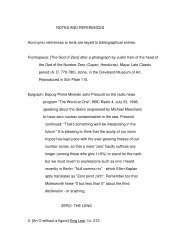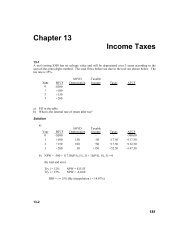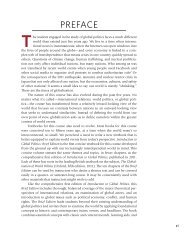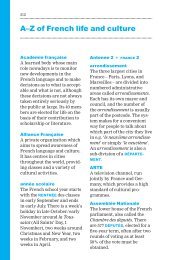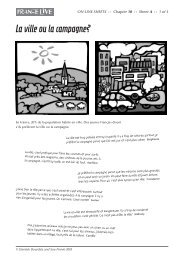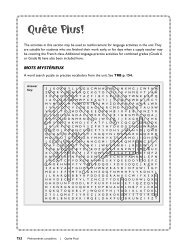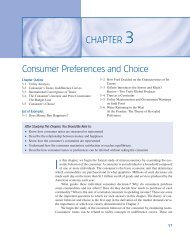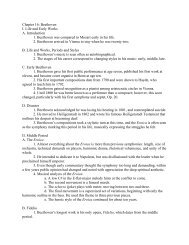1 Political authority and obligation Political authority and obligation
1 Political authority and obligation Political authority and obligation
1 Political authority and obligation Political authority and obligation
You also want an ePaper? Increase the reach of your titles
YUMPU automatically turns print PDFs into web optimized ePapers that Google loves.
<strong>Political</strong> <strong>authority</strong> <strong>and</strong> <strong>obligation</strong> 15<br />
BOX 1.2 PLATO, LOCKE, HUME, AND ROUSSEAU ON RESIDENCE AS CONSENT<br />
And if any one of you wishes to go to a colony, if he is not satisfied with us <strong>and</strong> the city, or to<br />
migrate <strong>and</strong> settle in another country, none of us, the laws, hinder or forbid him going whithersoever<br />
he pleases, taking with him all his property. But whoever continues with us after he has<br />
seen the manner in which we administer justice, <strong>and</strong> in other respects govern the city, we now<br />
say, that he has in fact entered into a compact with us, to do what we order.<br />
(Plato, 360 BC; 1892: 41)<br />
Every man that hath any possession or enjoyment of any part of the dominions of any government<br />
doth hereby give his tacit consent, <strong>and</strong> is as far forth obliged to obedience to the laws of<br />
that government, during such enjoyment, as any one under it, whether this his possession be of<br />
l<strong>and</strong> to him <strong>and</strong> his heirs for ever, or a lodging only for a week; or whether it be barely travelling<br />
freely on the highway; <strong>and</strong>, in effect, it reaches as far as the very being of any one within the territories<br />
of that government.<br />
(Locke, 1690; 1924: 177)<br />
Can we seriously say that a poor peasant or artisan has a free choice to leave his country, when<br />
he knows no foreign language or manners, <strong>and</strong> lives, from day to day, by the small wages which<br />
he acquires? We may as well assert that a man, by remaining in a vessel, freely consents to the<br />
dominion of the master; though he was carried on board while asleep, <strong>and</strong> must leap into the<br />
ocean, <strong>and</strong> perish, the moment he leaves her.<br />
(Hume, 1748; 1947: 221–2)<br />
After the state is instituted, residence implies consent; to inhabit the territory is to submit to the<br />
sovereign. [Footnote:] This should always be understood to refer only to free states, for elsewhere<br />
family, property, lack of asylum, necessity or violence may keep an inhabitant in the<br />
country unwillingly, <strong>and</strong> then his mere residence no longer implies consent either to the contract<br />
or to the violation of the contract.<br />
(Rousseau, 1762; 1968: 153)<br />
legitimate? It looks, then, as though the residence version of consent theory cannot succeed<br />
without relying on some prior justifi cation for political <strong>authority</strong> that does not appeal<br />
to tacit consent. If such a justifi cation can be found, then political <strong>authority</strong> will already<br />
have been shown to be legitimate <strong>and</strong> consent then becomes redundant.<br />
Voting as consent<br />
A second act that some consent theorists have argued is tacit consent to obey the law is<br />
voting in a democratic election. John Plamenatz, for example, writes that ‘where there is<br />
an established process of election to an offi ce, then, provided the election is free, anyone who<br />
takes part in the process consents to the <strong>authority</strong> of whoever is elected to the offi ce’ (1968:<br />
170). Of course, not everyone in the world has the opportunity to vote in a democratic<br />
election, <strong>and</strong> even among those who do, many choose not to exercise it. But can we at<br />
least say that citizens of democratic states who do cast their vote have freely consented<br />
to obey the law?




